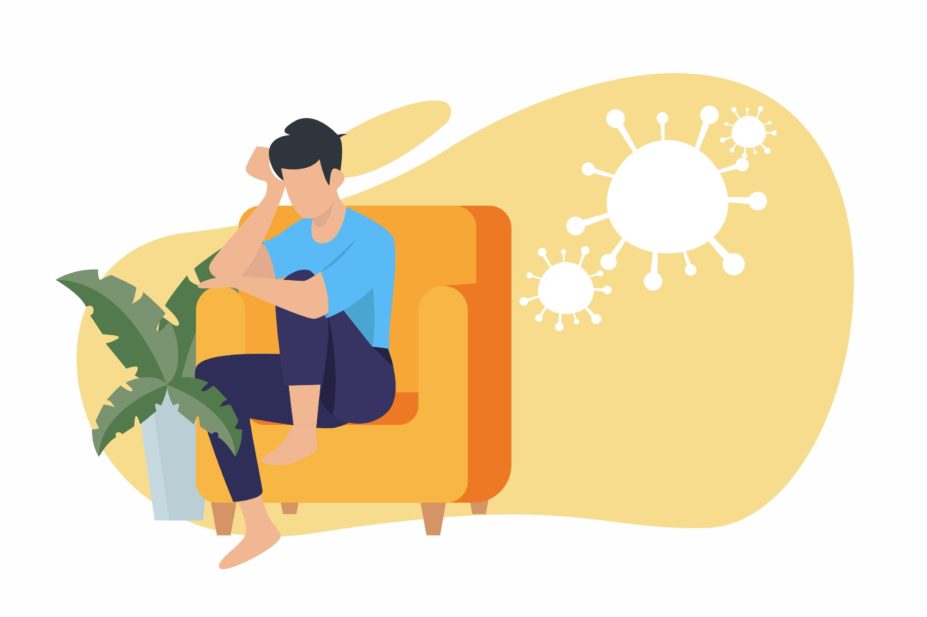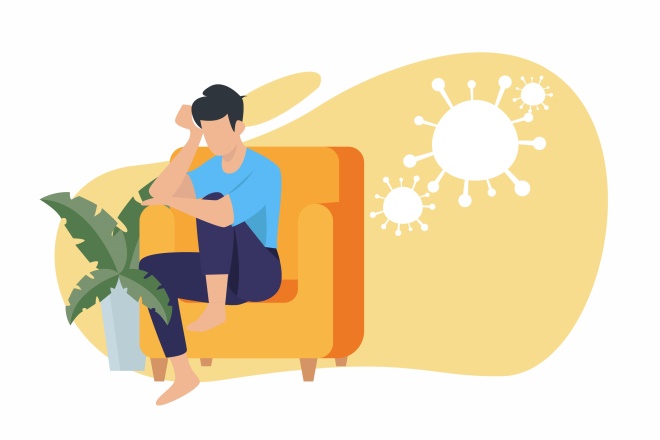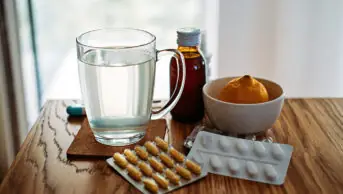
Shutterstock.com
Open access article
The Royal Pharmaceutical Society has made this article free to access in order to help healthcare professionals stay informed about an issue of national importance.
To learn more about coronavirus, please visit: https://www.rpharms.com/resources/pharmacy-guides/wuhan-novel-coronavirus

Source: Shutterstock.com
Self-care for frontline pharmacy teams is essential in the current circumstanceÂs. With reports of abuse from patients, exhaustion from working longer hours and anxiety over the lack of personal protective equipment during the COVID-19 pandemic, there is an unprecedented risk of physical and mental burnout.
The World Health Organization’s (WHO) guidance for frontline healthcare workers states: “Managing your mental health and psychosocial wellbeing during this time is as important as managing your physical health.”
This sentiment is echoed by Danny Mortimer, chief executive of NHS Employers, who told The Pharmaceutical Journal: “It’s now more vital than ever to make sure our teams are supported to maintain physical, mental and emotional wellbeing. We are facing an unprecedented situation for the NHS, and each day will bring with it more and more new challenges.”
Karen Neil, a specialist mental health and health promotion pharmacist and UK-registered mindfulness teacher, recommends the following simple self-care measures to help individuals protect their own, and their colleagues’ physical and mental wellbeing.

Karen Neil, a UK registered mindfulness teacher and an associate tutor in professional development at the University of Nottingham, says pharmacy professionals should focus on eating regularly, practising mindfulness, keeping in touch with friends and family and generally maintaining a positive attitude
1. Fuel yourself adequately
It sounds obvious, but the WHO recommends that frontline healthcare workers try to maintain a sufficient intake of healthy food during the COVID-19 pandemic. However, working long and busy shifts can make eating regular, healthy meals difficult.
“When stressed, the body craves sugar,” explains Neil. A chocolate bar or sweet treat will provide an initial surge in energy, but the subsequent spike in insulin leads to a dramatic drop in blood sugar and energy levels.
It can also be tempting for tired individuals to increase the amount of caffeine they consume, warns Neil, but “consumption late into the afternoon or evening can have an impact on sleep quality because of its long half-life of five to seven hours”. Neil recommends frontline pharmacy staff maintain proper hydration to support mental focus and to consume slow-release carbohydrates, such as wholegrain cereals, to keep them fuelled throughout the day.
Those too exhausted to cook can take advantage of free or discounted meals provided by various pharmacy employers, such as United Lincolnshire Hospital Trust, or schemes from large food delivery companies, such as UberEats and Deliveroo, offering free meals to NHS staff.
Various supermarkets have announced discounts and priority shopping times for NHS workers to ensure staff have access to essential groceries. Pharmacy staff who do not possess a form of NHS identification (e.g. an NHS Smart Card) are able to present a written letter from the Royal Pharmaceutical Society, which has been validated by the individual’s place of work.
Connect with nature by going for a walk in the sunlight whenever possible
2. Utilise mindfulness tools
When feeling overwhelmed, Neil recommends individuals take a few slow, deep breaths to help reduce the “fight or flight” response and help the body relax.
“Even if you only have a few moments, try step outside to breathe in the fresh air, and connect with nature by going for a walk in the sunlight whenever possible.”
Neil stresses the importance of pharmacy staff taking regular breaks whenever they can, but understands that current circumstances can make this difficult. To help with this, she recommends a simple mindfulness exercise which can be completed in three minutes:
“Sit or stand comfortably. Feel your feet planted on the floor and drop awareness into the body. Be conscious of your breath, allowing yourself these few minutes just to feel the physical sensations of breathing in and out. Anchor your attention to your breath, returning focus to your breathing every time the mind wanders.”
Small changes can have a large effect. After a long and stressful shift, it is tempting to drink alcohol to relax, but try having a bath last thing at night instead. This can help to improve the quality of your sleep.
3. Connect regularly with friends, family and colleagues
Talking regularly to family and friends on the phone, or via digital means, is important to help alleviate feelings of loneliness or isolation. This is especially true for pharmacy workers who are forced to self-isolate.
“It’s not about avoiding loved ones, but adapting and choosing how we connect with them, and using the available technology to help us do that,” explains Neil.
Checking in with colleagues is also important. Neil, who is a certified mental health first aider, advocates looking out for colleagues and performing regular ‘welfare checks’ to ensure fellow frontline staff are coping with the added pressures of the COVID-19 outbreak. Initiating these conversations can be difficult, but colleagues may feel unable to speak up about their struggles; therefore, encouraging others to ask for help is important.
The acronym ‘ALGEE’ (see Box 1) is a useful tool developed by Mental Health First Aid England to support individuals to engage in an open conversation.
Box 1: the ALGEE action plan
Approach, assess, and assist:
Identify and determine whether your colleague requires support. Ask questions such as:
- How are you feeling today?
- How are you coping with the increase in workload?
- Are you eating and drinking?
- Are you taking regular breaks?
- Are you keeping in regular contact with friends and family?
- What support do you have outside of work?
Listen:
Take time to actively listen and communicate with your colleague in an open and non-judgemental way.
Give support and information:
Reassure your colleague that you are there to support and help them.
Encourage appropriate professional help:
Suggest your colleague speaks to someone with professional expertise about their experience if needed. For example, their GP or a counsellor if possible.
Encourage self-help and other support strategies:
Suggest to your colleague that they reach out to family, friends and/or their line manager if needed.
When checking in with colleagues, watch out for any red flags, such as a change in behaviour or mood. For example, becoming increasingly tearful, lashing out in anger, becoming increasingly withdrawn or not eating or sleeping. If your colleague is displaying any of these, encourage them to speak to either their line manager or GP, or to contact the new NHS mental health hotline (see Box 2).
Box 2: The mental health hotline
The NHS launched a mental health hotline on 8 April 2020 for staff tackling COVID-19. Pharmacists working across all settings in the NHS can now call or text the service for support in dealing with the pressures of the pandemic.
- Phone: 0300 131 7000 from 07:00 to 23:00
- Text: FRONTLINE to 85258 (available 24 hours per day)
Neil recognises that working under stress can be quite isolating and, therefore, recommends individuals develop a support network with peers or colleagues to help each other. For example, a WhatsApp group to share experiences, or a means for people to chat and provide support — particularly if the day has been difficult.
4. Make your staff feel safe and supported
Staff members should feel supported so that they can give their best at this time. There are some simple and effective ways to help do this, such as:
- Sufficient staff breaks. For example, rostering off-periods or closing the pharmacy for a few hours during the day to get through the backlog of prescriptions;
- Implementing social-distancing measures to reduce the risk of staff feeling anxious about getting ill. For example, place markers on the floor indicating to patients the appropriate 2m distance to stand from one another when waiting in line, or restricting the number of patients coming into the pharmacy at any given time. Be sure to put up signs explaining these measures to patients;
- Considering using the NHS England £300 cash support to introduce physical barriers to prevent spread of COVID-19. For example, installing acrylic glass screen separators between staff and patients on pharmacy counters. This may require specialist expertise from a professional joiner;
- Creating a buddy system. Pair a junior team member with someone more experienced to provide guidance and social support. For example, have a pharmacist supervise and train a preregistration trainee to perform certain tasks. Should the trainee have any questions or concerns, their first point of contact should be their assigned buddy pharmacist;
- Regularly checking in with how staff are doing. As a manager, be sure to let your team know that you are available if they want to chat. They may not take you up on the offer, but the thought can go a long way in helping individuals feel supported;
- Addressing questionable behaviour from patients. While this might be coming from a place of fear, aggressive and untoward behaviour are still unacceptable. Put up notices in the pharmacy stating this and employ more security if necessary;
- Ensuring staff are aware of and have access to social support services;
- Actively sharing any new and accurate COVID-19-related updates with staff and how it might affect them.
Consider speaking with a manager if the above measures are not currently implemented in your pharmacy.
5. Reflect on the positive
When faced with negative or challenging experiences, humans are naturally wired to pay attention to, and remember negative events more than any positive ones. This is known as negativity bias.
“The brain is like Velcro for negative experiences and Teflon for positive ones,” explains Neil. “When under stress and constantly on the go, it is easy to run on autopilot, reinforcing negative thought patterns which impact emotions and mood.”
The first step is to recognise and acknowledge that the negative thought process is normal. The next step is to make a conscious effort to take a few moments at the end of each day to reflect on all the positive experiences. Examples of this may be a patient expressing gratitude for your care during the pandemic or catching up with a colleague at the end of a stressful shift.
Neil emphasises that during these uncertain times it is important to regularly take note of how we are feeling and ask for help if needed. “The ability to cope well in times of extreme emotional and mental burden comes from self-awareness,” she says.
Useful resources
- The Pharmaceutical Journal — ’
How to keep your community pharmacy running during the COVID-19 pandemic’ - World Health Organization — ’Mental health and psychosocial considerations during the COVID-19 outbreak’
- NHS Employers — ’COVID-19 guidance on health, safety and wellbeing’
- Public Health England — ’COVID-19 guidance’
- The Mindfulness Initiative — ’COVID-19 & mindfulness: resources for health and care staff’
- Pharmacist Support — ’Managing wellbeing guidance’
- Mind — ’General guidance for those with mental health illness’
- This article was updated on 9 April 2020 to include information on the NHS mental health hotline.



